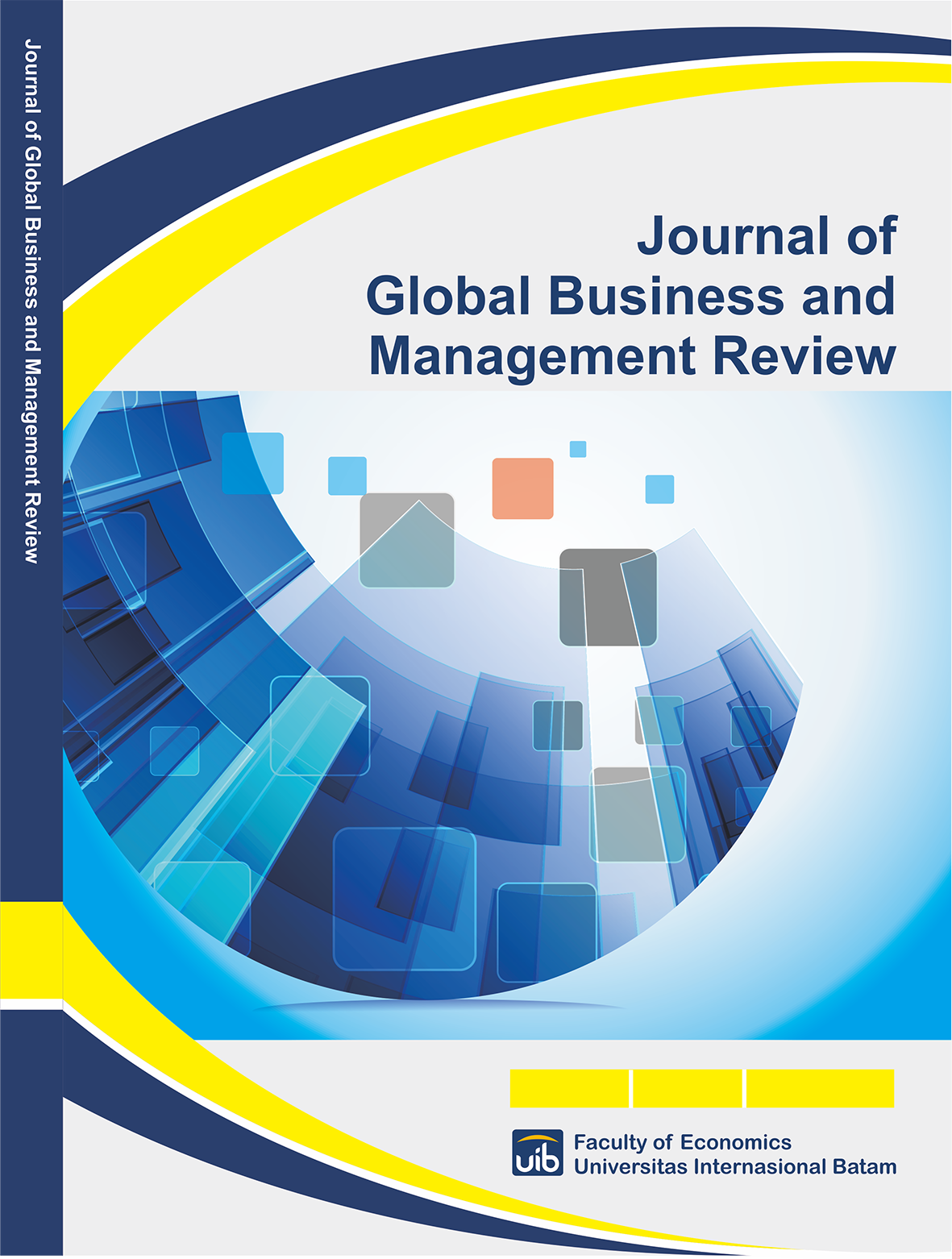Analysis of Factors Influencing Consumer Attitudes Towards Preloved Fashion in Indonesia
DOI:
https://doi.org/10.37253/jgbmr.v7i1.10344Keywords:
consumer attitude, sustainable consumption, preloved fashion, fashion industryAbstract
This research aims to determine the effect of dissatisfaction, fatigue, and perceived enjoyment on consumer attitudes regarding preloved fashion in Indonesia. This study targets those consumers who have at least some basic knowledge or have used shared fashion services. Purposive sampling was applied in this study, after which participants were chosen based on their knowledge and participation in the preloved fashion system. Data was gathered using an online survey and analyzed using SmartPLS software to perform validation, reliability, and hypothesis tests. The results indicate that dissatisfaction, fatigue, and perceived enjoyment are important contributors toward consumer attitudes regarding preloved fashion. This study aims at more sustainable fashion consumption patterns in younger emerging economies like Indonesia.
Downloads
References
Ajzen, I., & Fishbein, M. (2000). Attitudes and the Attitude-Behavior Relation: Reasoned and Automatic Processes. European Review of Social Psychology, 11(1), 1–33. https://doi.org/10.1080/14792779943000116
Al-Abdullatif, A. M. (2023). Modeling Students’ Perceptions of Chatbots in Learning: Integrating Technology Acceptance with the Value-Based Adoption Model. Education Sciences, 13(11). https://doi.org/10.3390/educsci13111151
Aryaputra, R. T., Okta Wibowo, T., Juan Stefan, R., Yusiana, R., & Jessica. (2023). The Phenomenon of Thrifting As An Alternative Solution Related to Reducing Environmental Impact on Fast Fashion. Formosa Journal of Multidisciplinary Research, 2(8), 1511–1526. https://doi.org/10.55927/fjmr.v2i8.5696
Baumeister, R. F., Bratslavsky, E., Muraven, M., & Tice, D. M. (1998). Ego depletion-Is the active self a limited resource-Baumeister et al(1998).pdf. Journal of Personality and Social Psychology, 74(5), 1252–1265.
Baumeister, R. F., Vohs, K. D., & Tice, D. M. (2007). The strength model of self-control. Current Directions in Psychological Science, 16(6), 351–355. https://doi.org/10.1111/j.1467-8721.2007.00534.x
Borusiak, B., Szymkowiak, A., Horska, E., Raszka, N., & Zelichowska, E. (2020). Towards building sustainable consumption: A study of second-hand buying intentions. Sustainability (Switzerland), 12(3), 1–15. https://doi.org/10.3390/su12030875
Choufan, L. (2021). Fashion You Do Not Own, Fashion You Cannot Feel: Toward a New Paradigm of Sharing Fashion in the Digital Age. Fashion Theory - Journal of Dress Body and Culture, 26(3), 307–328. https://doi.org/10.1080/1362704X.2021.1912954
Hair, J. F., Howard, M. C., & Nitzl, C. (2020). Assessing measurement model quality in PLS-SEM using confirmatory composite analysis. Journal of Business Research, 109(August 2019), 101–110. https://doi.org/10.1016/j.jbusres.2019.11.069
Kim, Y. (2021). Revitalization of offline fashion stores: Exploring strategies to improve the smart retailing experience by applying mobile technology. Sustainability (Switzerland), 13(6). https://doi.org/10.3390/su13063434
McCoy, L., Wang, Y. T., & Chi, T. (2021). Why is collaborative apparel consumption gaining popularity? An empirical study of us gen z consumers. Sustainability (Switzerland), 13(15). https://doi.org/10.3390/su13158360
Mohammed, V., & Razé, A. (2023). Towards Sustainable Fashion Consumption: An Exploratory Study of Consumer Behavior in a Developing Country. Journal of Sustainable Marketing, 4(1), 90–109. https://doi.org/10.51300/JSM-2023-105
Murphy, N. (2021, February 17). There’s A Quiet Revolution Underway With Recommerce. Forbes. https://www.forbes.com/sites/niallmurphy/2021/02/17/theres-a-quiet-revolution-underway-with-recommerce/?sh=73679fe15bfc
Swaswantika, I. A., Jariah, A., & Hidayat, Z. (2022). Analisis Perilaku Konsumen Terhadap Pengguna Fashion Branded Preloved Sebagai Konsep Gaya Hidup Indah Anatasyah Swaswantika 1 , Ainun Jariah 2 , Zainul Hidayat 3. Journal of Economic Education, 295–303. https://jkm.itbwigalumajang.ac.id/index.php/jrm/article/view/607
Themadjaja, T. L., & Gunadi, W. (2023). Factors Influencing Indonesian Consumers’ Behaviour in Fashion Renting. European Journal of Business and Management Research, 8(5), 122–131. https://doi.org/10.24018/ejbmr.2023.8.5.2067
ThredUp. (2024). ThredUp 2024 Resale Market and Consumer Trend Report. ThredUp. https://www.thredup.com/resale/#consumer- trends.
Wang, C. X., Yuan, H., & Beck, J. T. (2022). Too tired for a good deal: How customer fatigue shapes the performance of Pay-What-You-Want pricing. Journal of Business Research, 144(January), 987–996. https://doi.org/10.1016/j.jbusres.2022.02.014
Wang, Y., & Xiao, Z. (2022). The Dual Effects of Consumer Satisfaction on Brand Switching Intention of Sharing Apparel. Sustainability (Switzerland), 14(8), 1–15. https://doi.org/10.3390/su14084526
Wicaksono, P. A., Sari, D. P., Azzahra, F., & Sa’adati, N. A. (2024). Analysis of Consumer Behaviour in Purchasing Second-Hand Fashion Products: An Extended Theory of Planned Behaviour Model. International Journal of Sustainable Development and Planning, 19(8), 2955–2964. https://doi.org/10.18280/ijsdp.190813
Zeng, Z., Li, S., Lian, J. W., Li, J., Chen, T., & Li, Y. (2021). Switching behavior in the adoption of a land information system in China: A perspective of the push–pull–mooring framework. Land Use Policy, 109(March), 105629. https://doi.org/10.1016/j.landusepol.2021.105629
Downloads
Published
Issue
Section
License
Copyright (c) 2025 Journal of Global Business and Management Review

This work is licensed under a Creative Commons Attribution-NonCommercial-ShareAlike 4.0 International License.















